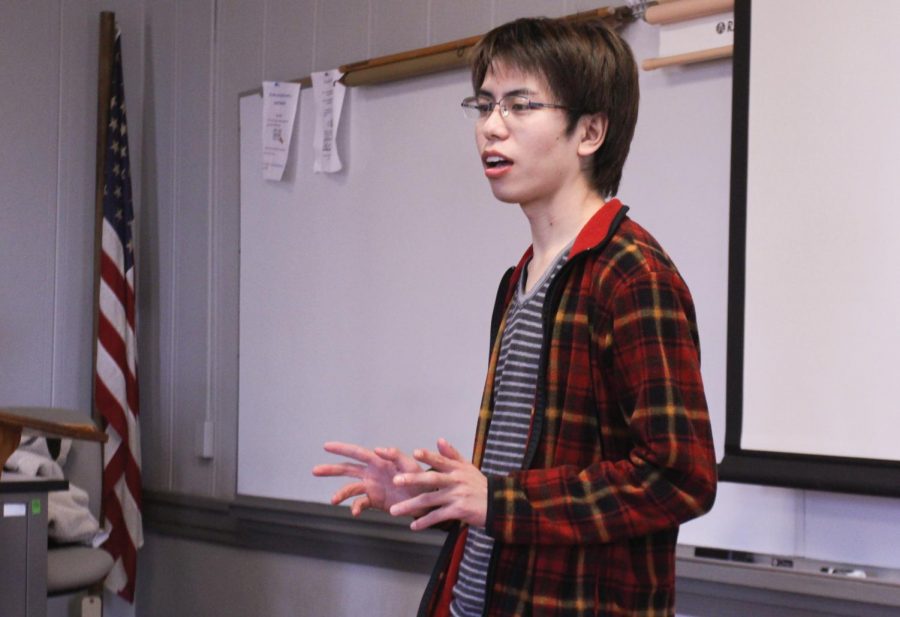Shigematsu’s personality shines in classroom
January 15, 2016
UNA’s international community is home to more than 600 students from 52 different countries. While many come here only to learn, there are some who take on the role of teacher as well.
There are currently six students teaching their native languages to others on campus. Instructors include one in Arabic, one in Chinese, two in Japanese, one in Swahili and one in Russian.
In fall 2015, there were 26 students enrolled in the critical language courses, according to the Office of Institutional Research, Planning and Assessment.
Junior Daichi Shigematsu said he found out about the critical language partner position from his friends.
“It’s been something I always wanted to try out,” he said. “I can say that I’m kind of confident in my English and I’m fluent in Japanese, so I felt like I could do a decent job teaching oral communication skills in Japanese.”
Shigematsu said he applied for the job on LionJobs, starting off as an elementary level teacher but quickly moving up to the intermediate level.
In an email, Director of Critical Languages Program Craig Christy said the main requirement to become a language partner is to be a native speaker in the language.
“No specific training beyond that is required since students study the grammar on their own, that’s the self-instructional part,” he said. “The language partner’s principle function is to model the language and engage the students in conversation.”
Shigematsu said leading an oral-based classed can be difficult.
“When there aren’t enough students who show up, it’s hard to make a class out of it,” he said. “I currently have three students, so one missing student can make it awkward.”
Junior James Gasque said there are some differences between Shigematsu and his other professors.
“The communication is more open between the teacher and the students,” he said. “The primary thing that makes him different from an ordinary professor is the fact that he is only paid around minimum wage to instruct a class that students pay full price for. That’s unfortunate for a person who tries as hard as he does.”
Christy said students have said favorable things about Shigematsu.
“Students consistently praise his dedication to teaching them Japanese,” he said. “He even goes beyond the call and gives them extra practice sessions, especially before the final exam.”
Gasque said Shigematsu is a competent teacher.
“He makes the class very easy to understand and very interesting,” he said. “He is very patient and willing to give us all of the help that we need. He even schedules out of class sessions for practice whenever anyone needs it.”
Christy said one of the reasons he chose Shigematsu for the job was his personality.
“When I interview potential LPs, I look for someone whose personality is compatible with this approach, so outgoing, affable and socially engaged,” he said. “Daichi matches the above described profile.”
Shigematsu said he sees himself as different from others.
“I’m different because even though I’m from Japan I’ve lived in the United States for many years,” he said. “I think both cultures influenced me to the extent that I’m kind of uncertain if I would be considered more Japanese or American.”
Christy said Shigematsu is also active in the Japanese University Meal Project, a registered student organization.
Shigematsu is the president of JUMP and he is doing an excellent job, said associate sociology professor May Takeuchi in an email.
“I have been hearing that JUMP now has a more diverse member composition in terms of their racial, ethnic and national backgrounds,” she said. “It seems to be one significant contribution that Daichi has brought to the group and to the University.”
Shigematsu said he has had an enjoyable experience during his time at UNA.
“It’s interesting to relive the American experience,” he said. “All the people I’ve met here have been really nice, so it’s been a good time here.”


